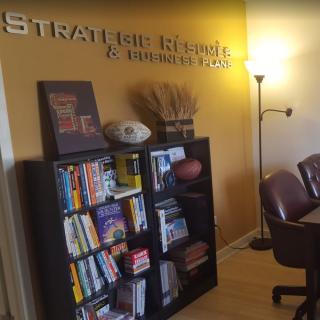News
Are Job Boards Still a Thing?

4 min read
As a career services agency, my primary business model is in preparing executives and professionals to compete for and land the best jobs through development of Strategic Resumes, Targeted Cover Letters, Enhanced LinkedIn Profiles, One-on-One Career Coaching, and Job-Winning Interview Skills.
However, on occasion, I have been contracted to find talent for my B2B clients. That process has absolutely involved selecting the appropriate marketing channels (ZipRecruiter, Indeed, LinkedIn, professional association portals, local media outlets, and occasionally Craigslist). Relying on only one source is not generally advisable, but may work for some. If you take advantage of the various job boards and portals, finding dozens of nominally qualified applicants is not particularly difficult… Finding “Right Fit” candidates who are likely to succeed in their new positions is much more challenging.
This is simply because the best potential employees are more often than not, already working. This is why recruiters primarily use assertive research and referrals to source candidates. Since I have 25 years in the professional resume writing and career coaching field, I also have built a database of tens of thousands of top performers (mostly former clients) in my market area (South Louisiana, Greater New Orleans, Baton Rouge) who I can contact to see if they are interested in a specific opportunity.
To make good hires, my firm has developed a proprietary, multi-step pre-interview screening process that, for the most part, eliminates no shows and substandard applicants, while maintaining full compliance with hiring laws. In summary, use a wide “all of the above” funnel to attract candidates, then be sure you have an effective and efficient screening process to arrive at a “short list” of finalists.
A survey I reviewed showed that Job Boards remain the #2 source of hiring, with Referrals being #1. Job boards can yield results, but their effectiveness is largely dependent on how you use them. If you simply post your resume and wait for opportunities to fill up your inbox or your phone to ring, unless you are in a very high demand occupation (e.g.-medical or engineering specialties), you are likely to be disappointed.
My assessment of the job board landscape is that certain job boards are definitely better than others. According to surveys, Ziprecruiter, Indeed, CareerBuilder, LinkedIn, Craigslist, Monster, and Glassdoor were tops. My local New Orleans area clients have generated excellent results from listings by logging into worknola.com and nola.com. One of my favorite sites is Idealist.org for nonprofit jobs.
You should definitely check out specialty job boards. These are niche sites run by professional associations, industry groups, or geared toward specific categories. Google the industry or occupation you are targeting, such as “Accounting” or “Hospitality” – and add the word “jobs” or “careers.” But be wary of “scam” job listings on Craigslist that offer fast or easy income, or those that require a fee or ask for personal information (like your social security number) in order to submit your application.
You can also set up “Job Alerts” on most job boards with very specific criteria using targeted keywords, locations, and other terms to narrow your search to only those positions you are seeking. The most important factor, whether you use a job board or not, is to have an organized, targeted approach to your job search.
7 Pointers for Finding a Job Online:
Always have a great resume available, a list of references you have worked with, plus several specific examples of accomplishments at previous jobs that made a difference. Never send your resume on first contact, unless requested.
Be sure that your LinkedIn Profile is up to top professional standards, including an attractive head shot photo (profiles without photos get few results).
Be aware of anything negative or unprofessional that is easily found about you online.
Define the types of companies you would like to work for and be realistic about which positions you are reasonably qualified for.
Use Google, Wikipedia, ZoomInfo, LinkedIn, and other online tools to research these companies and learn more about what they do, discover any recent news about them, identify who their key decision makers are, and obtain contact information.
Go to the company websites or portals, many of which will have a “Careers” or “Jobs” section, do some more research, and apply online there when possible. Yes, it is O.K. to apply to the same company or position on more than one platform, in fact, studies show it dramatically increases your odds.
Using the research you have already done, attempt to reach out politely to people within the company. Perhaps remark about something they wrote or a positive item about them that you discovered in your research. Explain briefly why their company interests you, then ask for advice concerning your career as opposed to directly asking for a job.
Grant Cooper received the Career Directors International President’s Award (CDI National Conference, Orlando, FL, 2015).
Grant Cooper, founder of Strategic Resumes & Career Coaching, has appeared on CBS, ABC & FOX, published 300+ media and journal articles, taught seminars at industry conferences, and has served as a panel judge for national resume competitions for the past 7 years consecutively.
Grant has assisted the U.S. Air Force, Kinko’s, the Louisiana Dept. of Labor, the NFL, the NBA, as well as many universities, regional banks, hospitals, celebrities, nonprofits, government agencies, entrepreneurs, and corporations. Grant’s clients land competitive positions at Fortune 500 firms.
Contact: grant@resupro.com | 504-891-7222
However, on occasion, I have been contracted to find talent for my B2B clients. That process has absolutely involved selecting the appropriate marketing channels (ZipRecruiter, Indeed, LinkedIn, professional association portals, local media outlets, and occasionally Craigslist). Relying on only one source is not generally advisable, but may work for some. If you take advantage of the various job boards and portals, finding dozens of nominally qualified applicants is not particularly difficult… Finding “Right Fit” candidates who are likely to succeed in their new positions is much more challenging.
This is simply because the best potential employees are more often than not, already working. This is why recruiters primarily use assertive research and referrals to source candidates. Since I have 25 years in the professional resume writing and career coaching field, I also have built a database of tens of thousands of top performers (mostly former clients) in my market area (South Louisiana, Greater New Orleans, Baton Rouge) who I can contact to see if they are interested in a specific opportunity.
To make good hires, my firm has developed a proprietary, multi-step pre-interview screening process that, for the most part, eliminates no shows and substandard applicants, while maintaining full compliance with hiring laws. In summary, use a wide “all of the above” funnel to attract candidates, then be sure you have an effective and efficient screening process to arrive at a “short list” of finalists.
A survey I reviewed showed that Job Boards remain the #2 source of hiring, with Referrals being #1. Job boards can yield results, but their effectiveness is largely dependent on how you use them. If you simply post your resume and wait for opportunities to fill up your inbox or your phone to ring, unless you are in a very high demand occupation (e.g.-medical or engineering specialties), you are likely to be disappointed.
My assessment of the job board landscape is that certain job boards are definitely better than others. According to surveys, Ziprecruiter, Indeed, CareerBuilder, LinkedIn, Craigslist, Monster, and Glassdoor were tops. My local New Orleans area clients have generated excellent results from listings by logging into worknola.com and nola.com. One of my favorite sites is Idealist.org for nonprofit jobs.
You should definitely check out specialty job boards. These are niche sites run by professional associations, industry groups, or geared toward specific categories. Google the industry or occupation you are targeting, such as “Accounting” or “Hospitality” – and add the word “jobs” or “careers.” But be wary of “scam” job listings on Craigslist that offer fast or easy income, or those that require a fee or ask for personal information (like your social security number) in order to submit your application.
You can also set up “Job Alerts” on most job boards with very specific criteria using targeted keywords, locations, and other terms to narrow your search to only those positions you are seeking. The most important factor, whether you use a job board or not, is to have an organized, targeted approach to your job search.
7 Pointers for Finding a Job Online:
Always have a great resume available, a list of references you have worked with, plus several specific examples of accomplishments at previous jobs that made a difference. Never send your resume on first contact, unless requested.
Be sure that your LinkedIn Profile is up to top professional standards, including an attractive head shot photo (profiles without photos get few results).
Be aware of anything negative or unprofessional that is easily found about you online.
Define the types of companies you would like to work for and be realistic about which positions you are reasonably qualified for.
Use Google, Wikipedia, ZoomInfo, LinkedIn, and other online tools to research these companies and learn more about what they do, discover any recent news about them, identify who their key decision makers are, and obtain contact information.
Go to the company websites or portals, many of which will have a “Careers” or “Jobs” section, do some more research, and apply online there when possible. Yes, it is O.K. to apply to the same company or position on more than one platform, in fact, studies show it dramatically increases your odds.
Using the research you have already done, attempt to reach out politely to people within the company. Perhaps remark about something they wrote or a positive item about them that you discovered in your research. Explain briefly why their company interests you, then ask for advice concerning your career as opposed to directly asking for a job.
Grant Cooper received the Career Directors International President’s Award (CDI National Conference, Orlando, FL, 2015).
Grant Cooper, founder of Strategic Resumes & Career Coaching, has appeared on CBS, ABC & FOX, published 300+ media and journal articles, taught seminars at industry conferences, and has served as a panel judge for national resume competitions for the past 7 years consecutively.
Grant has assisted the U.S. Air Force, Kinko’s, the Louisiana Dept. of Labor, the NFL, the NBA, as well as many universities, regional banks, hospitals, celebrities, nonprofits, government agencies, entrepreneurs, and corporations. Grant’s clients land competitive positions at Fortune 500 firms.
Contact: grant@resupro.com | 504-891-7222

